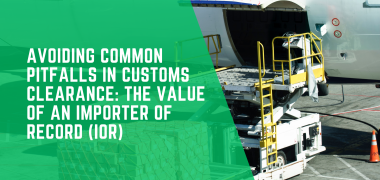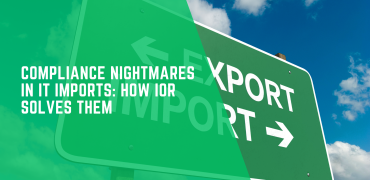How IOR Services Support ESG Goals in Global Trade
In today’s global economy, businesses must balance profitability with sustainability. Importer of Record (IOR) services are evolving to support Environmental, Social, and Governance (ESG) goals by ensuring responsible import practices.
The Role of IOR Services in ESG
IOR services ensure compliance, optimize logistics, and enhance transparency, helping companies align with ESG commitments.
- Reducing Carbon Footprint: Optimized shipping routes and partnerships with green-certified carriers minimize emissions.
- Ensuring Ethical Sourcing: Vetting suppliers prevents forced labor and unsafe working conditions.
- Enhancing Compliance: Following global trade regulations prevents legal risks and supports sustainability.
🔗 Learn about our IOR solutions
Sustainable Practices in IOR Services
- Green Logistics & Eco-Friendly Packaging
IOR providers partner with sustainable carriers and promote recyclable materials.
- Compliance with Environmental Regulations
Strict adherence to RoHS, WEEE, and EPR guidelines ensures responsible imports.
🌍 Global trade compliance solutions
- Technology-Driven Transparency
IOR services use blockchain and AI for supply chain visibility.
Challenges & Solutions in Sustainable Imports
Challenge: High costs of green logistics.
✅ Solution: Optimized routes & alternative transport solutions.
Challenge: ESG compliance complexity.
✅ Solution: AI-driven reporting & real-time auditing tools.
📢 Discover our Exporter of Record services
Case Study: ESG Success in IOR
A leading tech company reduced emissions by 20% through an ESG-focused IOR provider.
- Sustainable logistics cut carbon footprint.
- Blockchain technology improved supply chain visibility.
- Fair labor practices ensured ethical sourcing.
📖 Read more about ESG-driven IOR services
Conclusion: The Future of ESG & IOR Services
IOR services are key enablers of sustainable trade, ensuring compliance and ethical sourcing while reducing environmental impact.
✅ Start your ESG-compliant import journey
📍 Visit us: Google Maps




